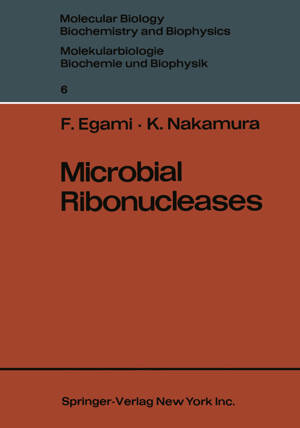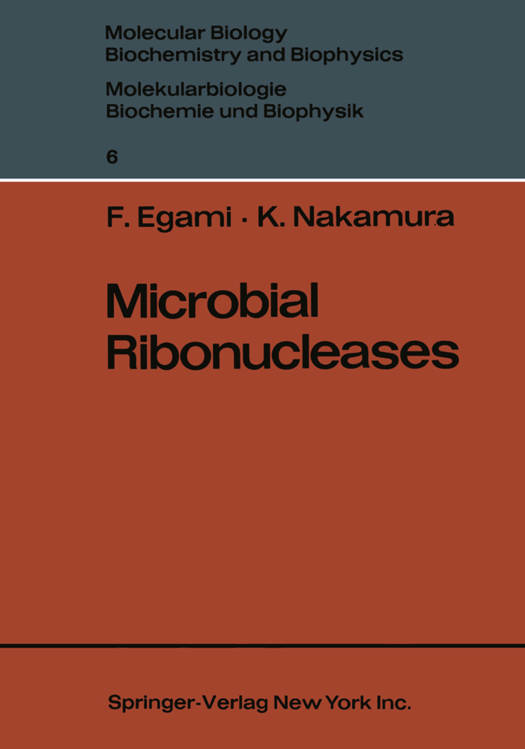
Door een staking bij bpost kan je online bestelling op dit moment iets langer onderweg zijn dan voorzien. Dringend iets nodig? Onze winkels ontvangen jou met open armen!
- Afhalen na 1 uur in een winkel met voorraad
- Gratis thuislevering in België vanaf € 30
- Ruim aanbod met 7 miljoen producten
Door een staking bij bpost kan je online bestelling op dit moment iets langer onderweg zijn dan voorzien. Dringend iets nodig? Onze winkels ontvangen jou met open armen!
- Afhalen na 1 uur in een winkel met voorraad
- Gratis thuislevering in België vanaf € 30
- Ruim aanbod met 7 miljoen producten
Zoeken
Omschrijving
Studies on microbial RNases began in 1924 when NOGUCHI found nucleic acid degrading enzymes in Takadiastase, a commercially prepared digest from Aspergillus oryzae. In 1935 OrANI reported the presence of enzymes degrading yeast RNA in fungi (Aspergillus sp. etc.). In 1948, MCCARTY studied the nuclease activity in 36 strains of group A hemolytic Streptococci and indicated the release of both RNase and DNase from Streptococcal cells during growth in culture media. As is well known, these nucleases (TILLETT et al., 1948) are applied in the treatment of inflammatory exudates. In 1952, MUGGLETON and WEBB found RNase in the culture medium of Actinomy- ces (strain A), and they suggested that the ability of the medium to render killed Gram-positive cells Gram-negative may be due to the RNase. In the same year PARDEE and his colleagues (1952 a, b) found RNase activity in E. coli (strain B) in- fected by bacteriophage T r, T3 etc. 2 KUNINAKA (1954) found ribonuclease in culture @trates of Aspergillus oryzae.
Specificaties
Betrokkenen
- Auteur(s):
- Uitgeverij:
Inhoud
- Aantal bladzijden:
- 92
- Taal:
- Engels
- Reeks:
- Reeksnummer:
- nr. 6
Eigenschappen
- Productcode (EAN):
- 9783642875007
- Verschijningsdatum:
- 14/06/2012
- Uitvoering:
- Paperback
- Formaat:
- Trade paperback (VS)
- Afmetingen:
- 170 mm x 244 mm
- Gewicht:
- 176 g

Alleen bij Standaard Boekhandel
+ 105 punten op je klantenkaart van Standaard Boekhandel
Beoordelingen
We publiceren alleen reviews die voldoen aan de voorwaarden voor reviews. Bekijk onze voorwaarden voor reviews.











